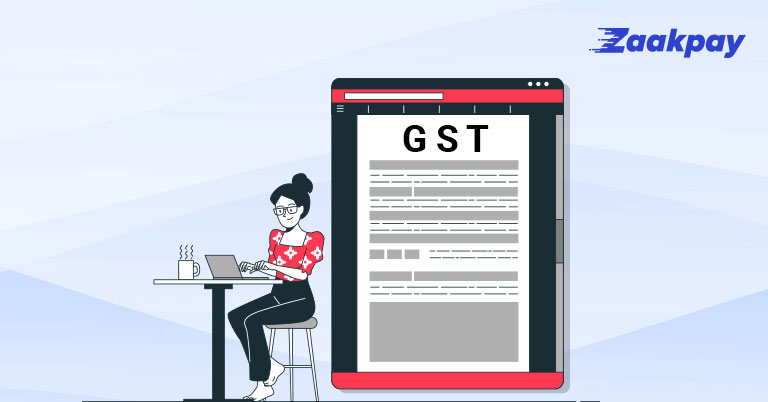In recent times India has emerged as a proliferating market of freelancers in almost every field. It has become a hub for passionate freelancers, and this has given a mega boost to this market which is on a path of constant growth. However, it is no secret that this industry falls under the unorganized sector. There is no particular set of rules and regulations to be followed by the people working in it. This sector is very huge and constitutes a variety of services and professions.
From consultants to blog writers, everyone can be a freelancer in their niche. One can make money out of their talents and be their boss at the same time. What is important is to make sure you are prepared well in advance with the best payment method for freelancers so at the time of project completion, there is no hassle in payment. Zaakpay payment gateway is one of the most convenient payment solutions for freelancers.
Freelancers can use payment links which can be further shared with their clients on Whatsapp, Message, Email or any social platform. With PCI compliance, Zaakpay is one of the best freelancer payment methods in the industry.
Further to this, the rules and regulations regarding the freelancer payment of taxes under the GST are a little confusing for people. This article will clarify all the complexities revolving around this topic.
What is GST?
- GST stands for Goods and Services Tax. It is an Indirect tax used in India on the supply of goods and various services. It is very comprehensive as it has combined almost all the indirect taxes leaving a few state taxes. It is applied in a multi-staged pattern by its imposition on almost every production process. GST is collected from the consumption point and not from the point of origin as it was done before on the previous taxes.
- The imposition of this tax category is done in different slabs. The rules and regulations regarding this are governed by the GST council that constitutes the central government, the finance ministers, and all the states.
Freelancers In India
- In no time, this sector has become one of the biggest revenue-generating sectors in India. It is no secret that it was bound to be taxed under the law. The demand and supply of freelancers in the Indian market are far more than what it was years ago. With time it has reached a new peak, and the revenue generated in this sector is massive which makes it important to choose the best payment method for freelancers.
- A freelancer is a person who is not employed by anyone as such rather gets paid by the different clients to work on several long-term or short-term projects. These projects are generally contractual, and the services rendered here in this type of work are one without an employer-employee relationship. In India, this culture has gained a massive swing over the years, and now the GST-related rules and regulations have also been applied over this unorganized sector.
GST for freelancers in India
- As the GST or the Goods and Services Tax is an indirect tax on the supply of goods and services, the freelancers in India are supposed to pay GST if their turnover exceeds Rs. 20 lakhs in a financial year.
- A freelancer who is eligible for this tax payment must register for the same. The documents that would be required at the time of the registration are a photo, a copy of the PAN or Aadhar card, identification and residence evidence, a recent bank account statement or a canceled check, digital signature, electricity, or telephone bill, office lease agreement, and a no-objection certificate.
- Once the registration is done and all the documents are submitted as a freelancer, you must follow the process to be on the right side of the prevalent law. The freelancer must collect all the GST amounts and pay the government when filing the GST return.
- The GST rates can be charged at 0%, 5%, 12%, 18% or 28%. It depends upon the type of service that the freelancers have provided to their clients. If there isn’t a specific percentage per se, then it has to be 18% that you will have to charge on your clients.
- Once you have received your GST identification number, you will have to file GST regularly. This is, however, irrespective of the current or the yearly turnover. The payment can be made on a monthly or yearly basis. There will be a total of 37 returns to be filed, and all the payments are to be made online.
- Non-payment of the GST proceeds may lead to a penalty, and after the payment of all the applicable taxes, you will have to submit a monthly summary return under GST 3B. To make easy payments, you can use the freelancer payment method with Zaakpay payment gateway. It is one of the most convenient freelancer payment options and even suitable for small, medium and large businesses.
- The clients of the freelancers generally expect them to raise invoices. Therefore, when a freelancer raises an invoice, the client may deduct a 10% TDS from every invoice.
Advantages of GST for a Freelancer
- As a freelancer, one does not receive any particular benefit by registering for GST. The benefits of registering for the GST are more or less the same for everyone. One of the biggest advantages of this latest GST regime is that it can be done online. The time and resources are saved by not filing excess paperwork and waiting for your chance to begin with the process. It can be done from the convenience of your home without any extra effort.
- All one has to do is go to the GST portal, create an account, and log in. This is all that is required before filing the returns. Any additional cost that may occur is not the responsibility of the freelancers. It is all by the client or the customer. Further, you will be allowed to claim a GST credit. This GST credit can be used to manage future GST liabilities and to seek a refund, if any, in the future.
The Disadvantages of GST for a Freelancer
The only disadvantage or rather an inconvenience of filing a GST is that the process is quite time-consuming. Further, it may require the help of a professional as GST is a relatively new concept.
In conclusion, we can say that if you fall within the ambit of a GST taxpayer as a freelancer, then you should do it regularly and be on the right side of the law. There are several online platforms available that can help you in this process.
Zaakpay simplifies the online payment process of making payments and receiving funds anytime and anywhere for freelancer payments. This platform allows online payments within seconds and offers all the right tools to grow your business and optimize your experience. GST payments can be made easily by using this platform.
This freelancer payment method also offers 24×7 customer support, affordable pricing, custom check, a high transaction success rate, and a powerful dashboard. Power your payments with Zaakpay and enjoy the convenience of faster payments with 100+ freelancer payment options.
Follow Us on:

